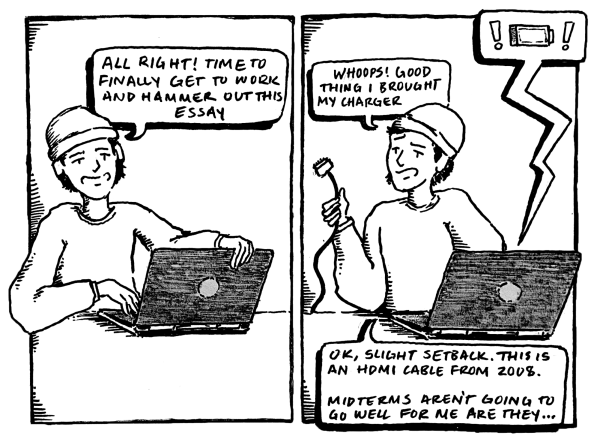Arabic Transition Offers Opportunity to Model Creative Collaboration
The recent decision to transition intermediate and advanced Arabic courses to a digital classroom platform known as the Shared Languages Program (covered in-depth in this week’s Review, “Arabic Courses to Be Offered Digitally”) has highlighted two truths about Oberlin’s current campus climate.
The first, which has been obvious for quite some time, is that the time to make difficult decisions is here. Oberlin’s finances are at a point where, if action is not taken now, the institution will struggle to keep its doors open down the road.
The second is that College administrators and students are getting better at coming together and discussing in good faith what those decisions are, and how they should be addressed — although we’re not quite there yet.
While the recent decisions concerning the Arabic program at Oberlin are not directly connected to the ongoing Academic and Administrative Program Review (although motivated by similar priorities), they have elicited concern and anger toward administrators.
However, that concern has translated into some tangible proposals, rather than complete rejections of any changes. Whether or not the proposals are feasible is another discussion — but an important one to have, nonetheless.
Some of the responsibility for the current dissonance regarding the future of Arabic at Oberlin lies with administrators. There has not been clear enough communication regarding the future of course offerings in introductory-level Arabic, nor about future on-campus mentoring opportunities for students enrolled in Arabic courses. Administrators have committed to providing an on-campus mentor, but what that position will actually look like is still up in the air.
The lack of communication and clarity represents a missed opportunity for the administration to rally support behind the SLP — a program with the potential to actually expand and deepen Oberlin’s language curriculum, and to build stronger networks between faculty and students across the Great Lakes Colleges Association. Especially for languages like Arabic, which may have only one faculty member on any given campus, the opportunity to share approaches and feedback with colleagues is valuable.
Despite those missteps, transitioning intermediate- and upper-level Arabic course offerings to the SLP model is an overall prudent and thoughtful financial and educational decision. The position currently filled by Visiting Assistant Professor of Arabic Basem Al Raba’a was funded by a four-year grant designed to discern whether Oberlin students would be interested in taking Arabic courses. As it turns out, the answer was not really — at least not beyond the introductory level. Over the past eight semesters, the average enrollment in intermediate Arabic classes was just four students.
Those numbers don’t support Oberlin’s current model for Arabic course offerings. Further, students and professors who have previous experience with the SLP model report positive learning and teaching outcomes.
Seeking innovative solutions like the SLP in order to avoid completely eliminating course offerings represents a genuine effort by administrators to recognize that Oberlin can’t be all things to all people, but that we can still leverage the technology and tools at our disposal to get as close to that ideal as possible.
It is important to note, however, that introductory-level Arabic classes have seen consistent student interest, a fact that must be taken into account when appointing the on-campus mentor. It would be a significant loss if future Oberlin students were not offered this course, making it impossible for them to advance to the courses offered through the SLP.
For all of these reasons and others, the current campus dialogue about Arabic opens a much larger conversation about how we, as a community, can effectively digest the impending AAPR recommendations and then — in collaboration — chart paths forward that achieve financial sustainability without sacrificing what makes Oberlin special. In that process, all parties need to be candid, transparent, and ready to come to the table.
The controversy over the future of Arabic at Oberlin shows that we’re not perfect, but we’re getting better adapting to financial strain — certainly more so than in the past. True, administrators missed an opportunity to communicate as clearly as they could have. Likewise, students have failed to fully recognize the potential of the SLP platform as an opportunity to both extend and deepen Oberlin’s language offerings. They have also not fully engaged with realities about chronic underenrollment or the grant that funded Al-Raba’a’s position.
Let’s take this moment, before the whirlwind of AAPR has truly begun, to recognize that we’ve come a long way, but we still have a long road ahead of us, one filled with successes and disappointments alike. The current situation with Arabic isn’t ideal, and the changes — while financially necessary — potentially challenge Oberlin’s ability to offer on-campus educational experiences that reflect and celebrate the diversity of its student body.
However, the proposed adjustments come from our shared goal of financial sustainability, not a desire to eliminate a widely-supported program — and recognizing that creates a valuable opportunity to model the creative collaboration we all must engage in moving forward, with many more difficult decisions on the horizon.


